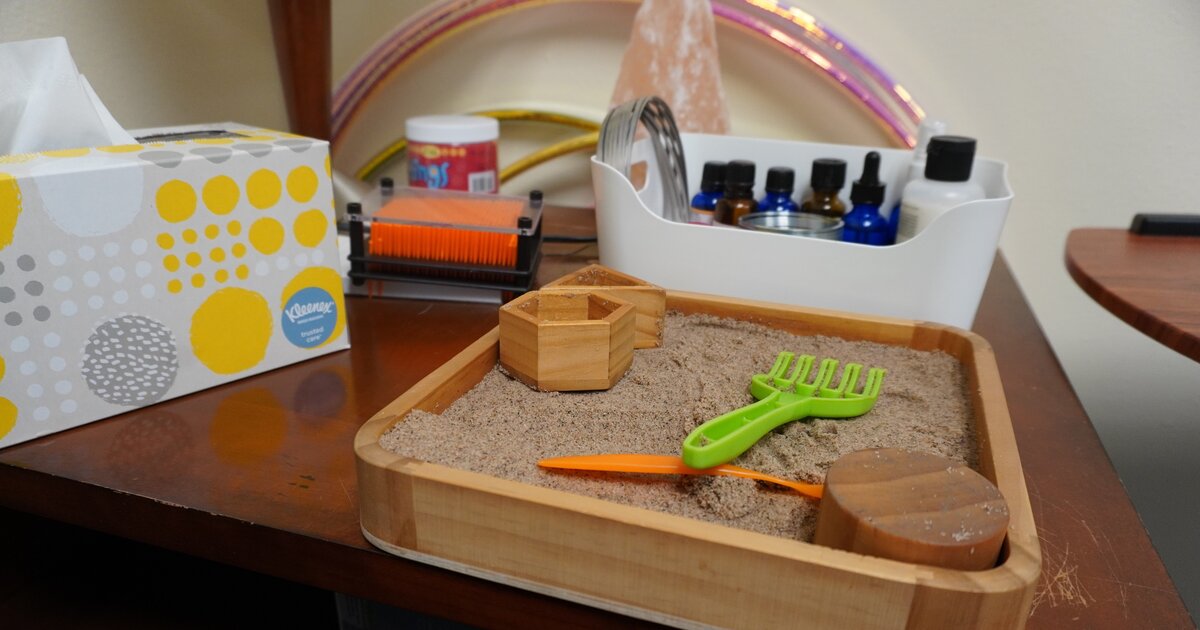
Demystifying Play Therapy with Children and Teens
Originally Posted On: Answering Your Questions About Play Therapy For Adolescents (sageclinic.org)
In the developmental years of childhood, children who have behavioral problems or disorders can develop life-long mental health issues. Trauma, loss, anxiety, and other behavioral problems during a child’s early development growth can eventually lead to them acting out, being disruptive, or even developing lasting behavioral disorders. Therapy for children is meant to mitigate these behavioral problems and help the child manage their symptoms so they can do well in school, at home, and in their community.
What Is Child Therapy?
Child therapy is a tool for helping children, adolescents, and teens navigate mental illness, trauma, or a stressful or traumatic environment. A child therapist can provide valuable insight into your child’s emotional development and mental health. Some people are confused as to why young children would need therapy or counseling, but in fact, many of the issues faced by children mimic those commonly faced by adults. Addressing issues like trauma, social anxiety, or mental illness early on can help give your child the tools they need to grow and thrive.
Therapy for Teens
Significant changes happen during our teenage years. It can be a challenge for parents to adequately understand why their child has started to act out and how to help them. Teens tend to lack the strategies to combat difficult feelings while they are getting older and changing rapidly, both physically and mentally. Because of their rapidly changing selves, teens may have a difficult time opening up to their parents about their issues, keeping potentially harmful emotional situations to themselves. Therapy creates a space for teens to be comfortable sharing their feelings either with their parents or a therapist relieving them of their emotional baggage and giving them a comfortable outlet to vent their emotions.
It’s common for therapy in the childhood years and teenage years to involve the parents. These parent-focused therapy sessions may involve a therapist guiding the parent, or on rare occasions, older children and young adults may see a therapist one-on-one. These parent-focused approaches to child and teen therapy are intended to give the parent enough information to be a part of their developmental stages and focus on helping their child through any difficulties they may face.
Play Therapy is an approach specially tailored towards children and teens. Unlike normal therapy that requires emotional understanding, willingness, and communication skills from the patient that adolescents have yet to develop, play therapy is designed with the lack of these three skills taken into consideration. It can then be implemented in children and teens who are emotionally distressed while allowing them to slowly understand their problems and how to overcome them. Therapy for children and therapy for teens through play lets them naturally come into their own while letting their parents in on their developmental process.
What Is Play Therapy
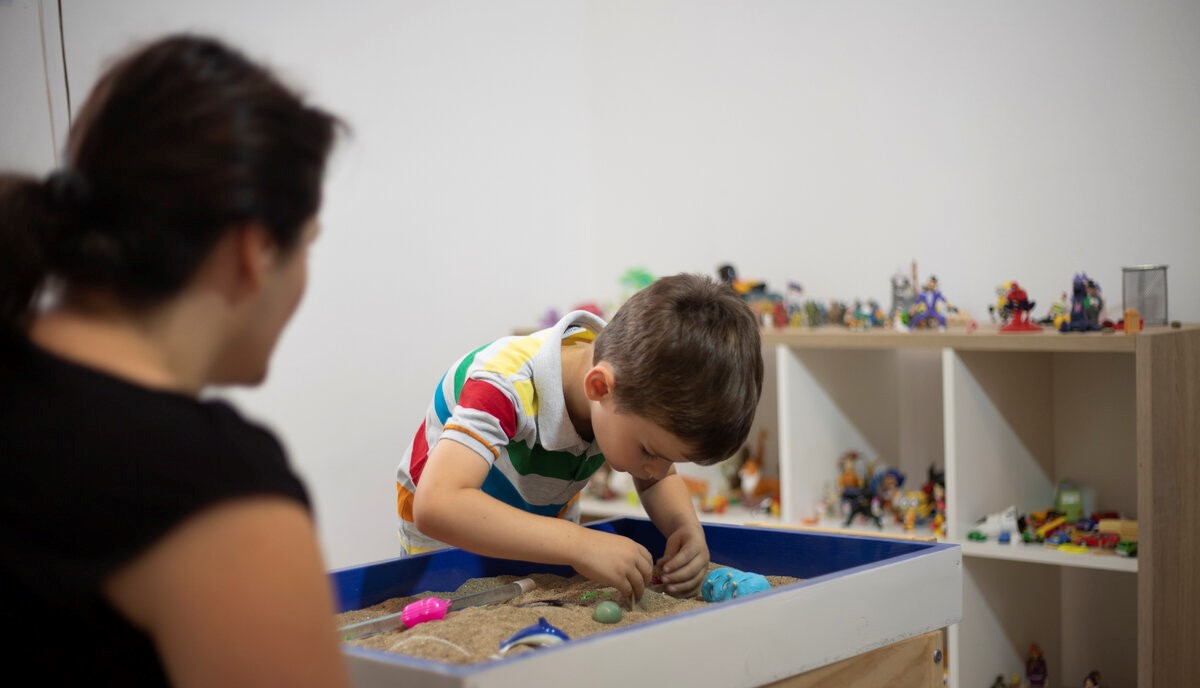 Photo from Getty Images
Photo from Getty Images
Play therapy is a form of emotional therapy for children intended to stimulate their natural emotions and feelings through play in a controlled environment. Children who need mental guidance but are otherwise too young to understand what they are going through or how to deal with it are best suited for play therapy.
Why Play
Children are not suited for advanced forms of communication therapy that involve deep-rooted feelings and the ability to effectively express these feelings to someone else. Rather, children are more apt to respond to pure emotional therapy involving limited communication that stimulates their natural feelings. Toys, games or otherwise simple yet engaging forms of play can then be used to stimulate emotions in trauma-induced children.
Playing holds an important role in the human psyche. This fact doesn’t change as we get older. Instead, we develop different, more mature tastes in our definition of play. For example, video games are a form of play nearly anyone at any age can enjoy. It makes the player feel happy, allows them to vent, or gives them a break from their day-to-day lives. Even going hiking or developing a hobby can be a form of play as one gets older.
Why Play Therapy
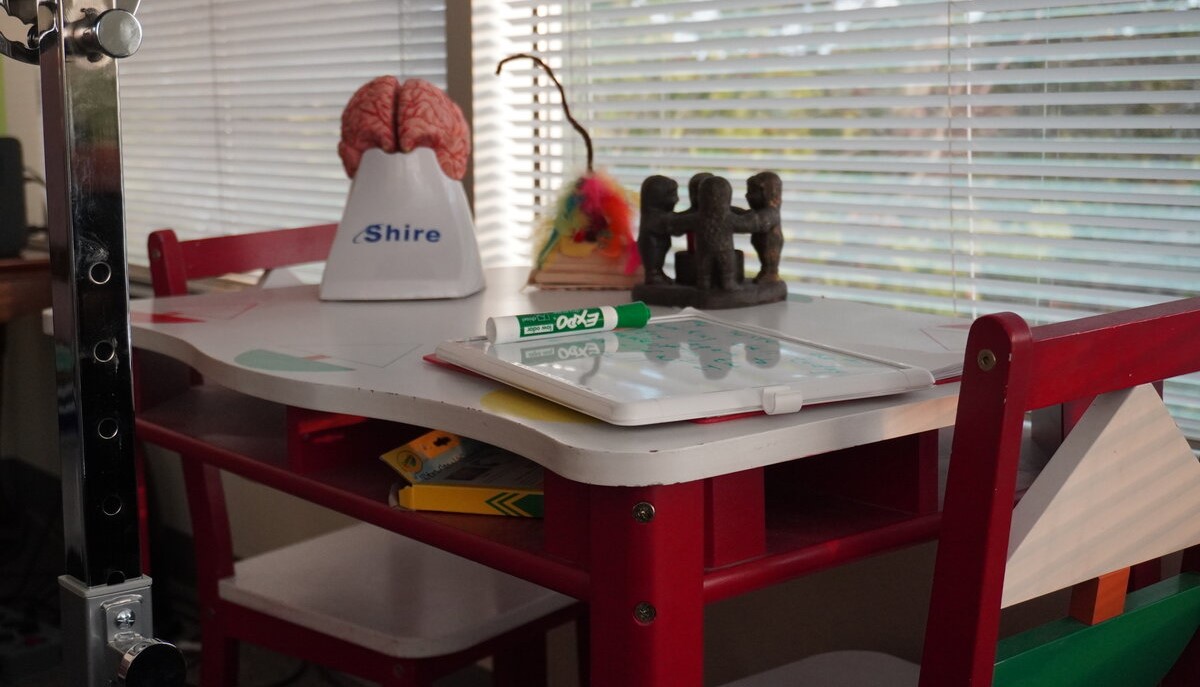 Children referred to play therapy have often used up their available problem-solving tools. They are too young to be aware of their feelings and tend to misbehave. This can result in them acting out at school, with friends or family, or otherwise acting recklessly as a form of venting their problems. Play therapy by a trained and licensed mental health practitioner uses a controlled environment specifically suited to enhance productive therapeutic interactions in children.
Children referred to play therapy have often used up their available problem-solving tools. They are too young to be aware of their feelings and tend to misbehave. This can result in them acting out at school, with friends or family, or otherwise acting recklessly as a form of venting their problems. Play therapy by a trained and licensed mental health practitioner uses a controlled environment specifically suited to enhance productive therapeutic interactions in children.
Using basic physical objects as their therapeutic medium, a play therapist can help children cope with difficult emotions and even help them find solutions to problems. These solutions are healthier than what they come up with on their own, allowing them to change the way they think about and resolve their concerns. Play therapy can even allow children to develop long-lasting strategies that they carry into adulthood.
Play therapy is effective in alleviating both behavioral problems and behavioral disorders. Complex emotional problems such as anger, grief, or loss and disorders such as anxiety, depression, attention deficit hyperactivity (ADHD), and autism can be helped through play therapy.
Issues Treated With Play Therapy
While play therapy can be successful in treating children of all ages, it is most often used in treating children ages 3-12. Because play therapy is among the most effective approaches when it comes to treating younger children, play therapy has been successful in helping children suffering from a wide variety of issues.
Some parents choose to have their children start play therapy due to one or more of the following circumstances:
- Experiencing family issues such as divorce, separation, or death of a family member or loved one
- Increased anger or aggression
- Persistent behavioral issues at school or at home
- Being a victim of or witnessing acts of violence, neglect, or abuse
- Experiencing a natural disaster or other types of traumatic event
- Currently facing or recovering from medical procedures, chronic illness, or chronic pain
- Eating and toileting disorders
- Learning disabilities or developmental delay
- Attention deficit hyperactivity disorder (ADHD)
- Autism spectrum disorder (ASD)
While play therapy is typically reserved for children, it can sometimes be a useful means for treating adults as well. Some adults or teenagers struggle with expressing themselves in words. For these individuals, play therapy may enable them to more easily share their innermost feelings and emotions. Play therapy is sometimes used to treat adults suffering from chronic illness, intellectual disabilities, trauma or physical abuse, anger management issues, PTSD, or unresolved childhood traumas.
How Does Play Therapy Benefit a Child?
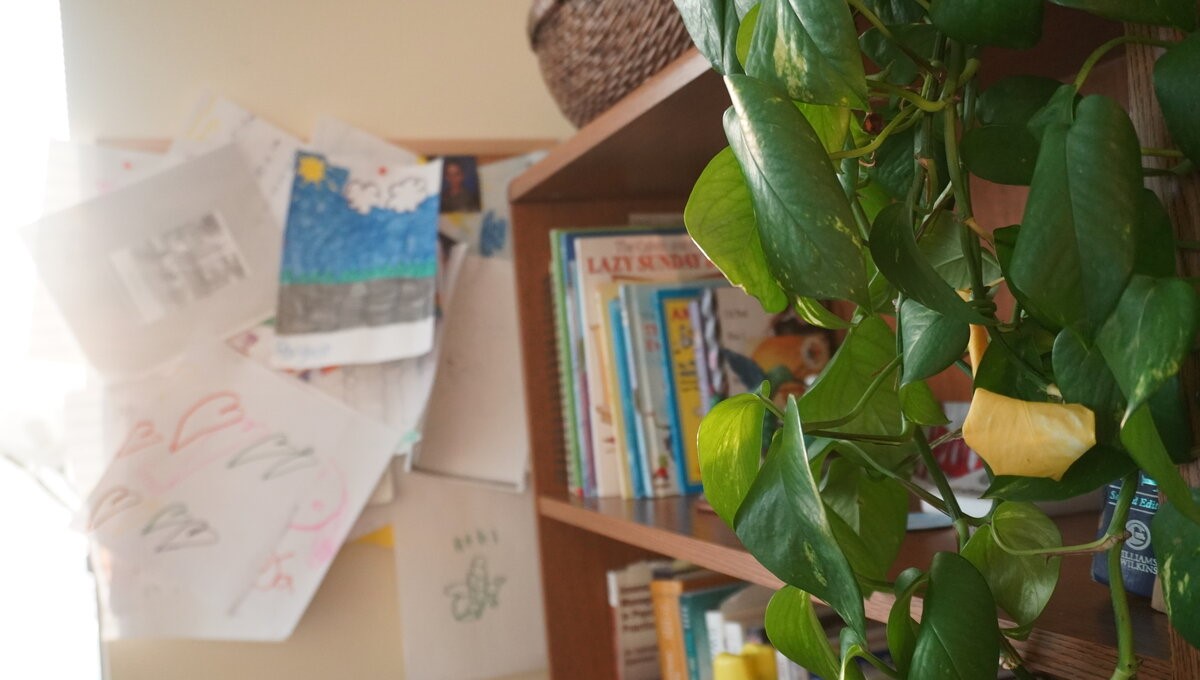 Play therapy is beneficial to children who lack coping strategies in difficult situations. They either lack the ability or the knowledge to find effective solutions to their problems. Since the developmental phase of children is so important to their overall mental health going into adulthood, the effectiveness of play therapy and the benefits that it brings can be life-altering.
Play therapy is beneficial to children who lack coping strategies in difficult situations. They either lack the ability or the knowledge to find effective solutions to their problems. Since the developmental phase of children is so important to their overall mental health going into adulthood, the effectiveness of play therapy and the benefits that it brings can be life-altering.
Some of the benefits a child or teen may experience after play therapy include:
- Become more responsible for their actions.
- Develop new and creative solutions to problems.
- Develop respect for themselves and others.
- Learn to experience and express emotion.
- Learn new social and relational skills.
- Develop self-confidence about their abilities.
Play Therapy Techniques
After meeting with your child, a play therapist develops a treatment plan specially tailored to your child’s individual needs, learning style, family background, and personality. Every child is unique and faces a unique set of circumstances. Because no two children are the same, no two treatment plans will look exactly alike, either.
There are two main and distinctive approaches to child therapy, a directive approach and a nondirective approach. In a directive approach, the therapist often takes the lead, carefully choosing and specifying the various toys and games to be used in each session.
In a nondirective approach, the therapist allows the child more freedom. Rather than directing the child towards a preselected game or toy, the child is allowed to choose for themself. In this method, there are fewer interruptions or directions from the therapist, who takes a more observational approach during the session.
During a session, play therapists employ a wide range of techniques and devices, including:
- Storytelling
- Role-playing
- Creative visualization
- Dolls, puppets, and stuffed toys
- Arts and crafts
- Dance
- Water and sand play
- Painting
- Action figures
- Blocks or construction toys
- Play phones
Child and Teen Therapy at Sage Neuroscience Center
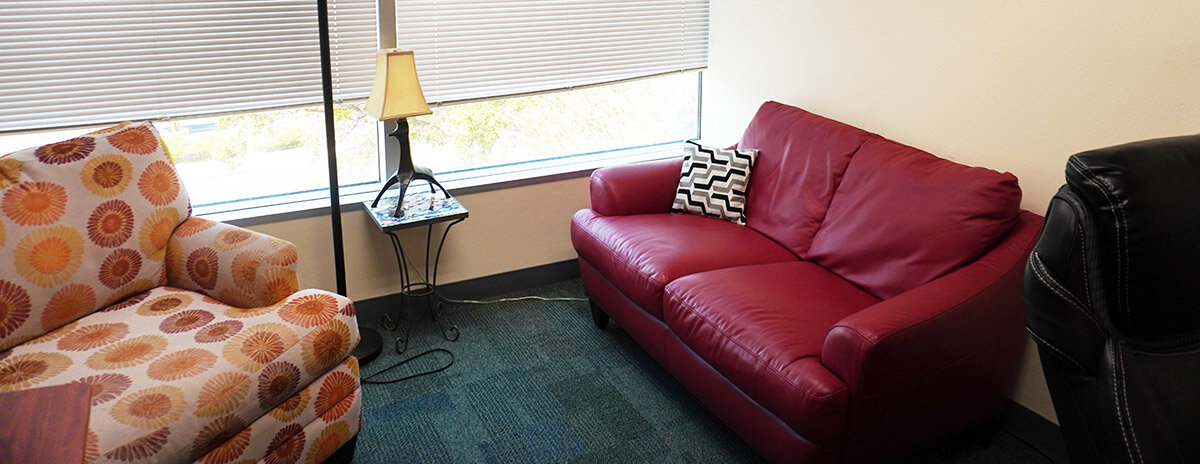 Sage Neuroscience Center is New Mexico’s premier behavioral health and physical care services. At our clinic we offer a range of children’s mental health services focused on the best course of treatment for the unique needs of your child.
Sage Neuroscience Center is New Mexico’s premier behavioral health and physical care services. At our clinic we offer a range of children’s mental health services focused on the best course of treatment for the unique needs of your child.
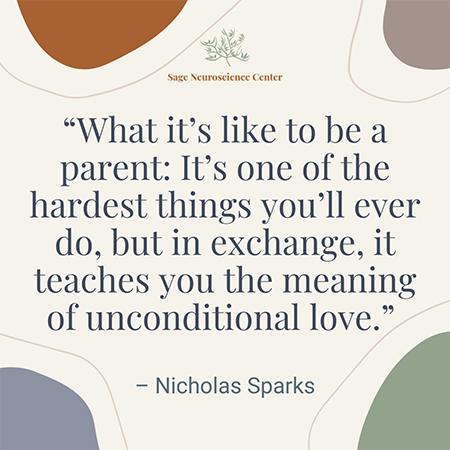 Our mental health care professionals are here for you and understand what you are going through. Your child’s mental health is important to their development. Don’t overlook potentially harmful behaviors that could result in lasting behavioral problems into adulthood. We are here to help both you and your child get through the most important years of their lives.
Our mental health care professionals are here for you and understand what you are going through. Your child’s mental health is important to their development. Don’t overlook potentially harmful behaviors that could result in lasting behavioral problems into adulthood. We are here to help both you and your child get through the most important years of their lives.
Please visit Child and Adolescent Therapy Services in Albuquerque to learn more about our services and watch a video from one of our Adolescent Mental Health Counselors, Marisol Aldana, who talks about why she loves what she does and what you can expect from child therapy. Reach out anytime to discuss how Sage can help your child with mental health issues.
